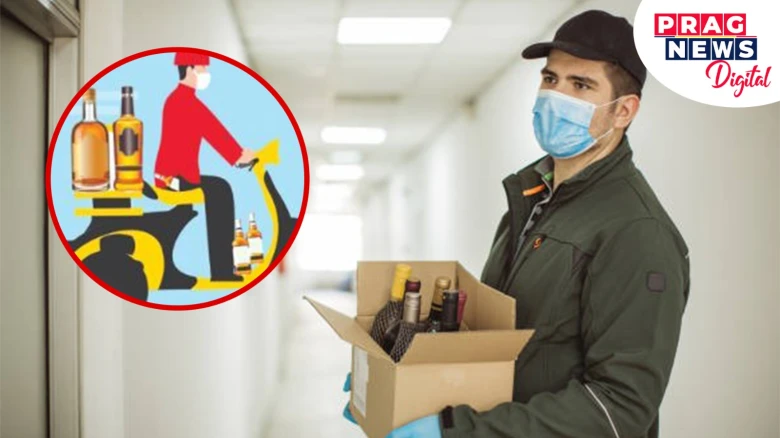This initiative not only aligns with changing consumer preferences but also has the potential to drive economic growth and set a precedent for other regions to follow...
Digital Desk: Several Indian states including New Delhi, Karnataka, Haryana, Punjab, Tamil Nadu, Goa, and Kerala are considering pilot projects for the home delivery of liquor. Industry insiders have revealed that these initiatives, which would initially focus on low-alcohol beverages such as beer, wine, and liqueurs, aim to leverage established online platforms like Swiggy, BigBasket, Zomato, and Blinkit.
Catering to Changing Consumer Preferences
The primary motivation behind these pilot projects is to cater to the evolving preferences of consumers, particularly in urban areas. A growing expatriate population, coupled with changing consumer profiles, has led to an increased demand for convenient and regulated access to alcohol. This is especially true for moderate alcohol-content spirits, which are increasingly perceived as part of recreational dining.
Women and senior citizens have specifically highlighted the unpleasantness of purchasing from traditional liquor stores. The shift towards online delivery is seen as a way to enhance convenience and improve the overall buying experience for these demographic groups.
Regulatory and Safety Measures
To address concerns related to the online sale of alcohol, state authorities are actively seeking feedback from e-commerce platforms and spirits manufacturers. Dinker Vashisht, Vice President of Corporate Affairs at Swiggy, emphasized that online models ensure comprehensive transaction records, strict age verification, and adherence to regulatory limits. Swiggy, along with Spencer's Retail, currently facilitates home delivery of spirits in West Bengal, demonstrating a successful model for other states to consider.
Online platforms are designed to synchronize with regulatory and excise requirements, ensuring compliance with delivery timings, dry days, and zonal restrictions. This level of regulation is intended to offer a more controlled and responsible distribution method compared to traditional retail outlets.
Challenges and Opportunities
Despite the potential benefits, the implementation of online alcohol delivery faces significant hurdles. Political resistance, public perception issues, and opposition from physical retail bodies have historically impeded similar initiatives. During the Covid-19 lockdowns, states like Maharashtra, Jharkhand, Chhattisgarh, and Assam temporarily permitted alcohol deliveries. However, these permissions have since been revoked, though some local platforms continue to operate, particularly in Maharashtra.
Retail industry executives report that online alcohol deliveries have led to a 20-30% increase in sales, especially for premium brands, in states like West Bengal and Odisha. This data underscores the potential economic benefits of legitimizing and expanding these delivery services.
Ensuring Responsible Consumption
To mitigate concerns about unregulated sales, online delivery services incorporate stringent measures such as mandatory eKYC (electronic Know Your Customer), purchase caps, and OTP (One-Time Password) verifications. These measures ensure that only eligible consumers can place orders, thus preventing underage drinking and promoting responsible consumption.
Rahul Singh, CEO of The Beer Cafe, supports the initiative, stating that online deliveries can enhance consumer convenience, drive economic growth, and align with global trends while ensuring regulated alcohol distribution. Industry executives from leading beer brands like United Breweries and AB InBev are particularly enthusiastic about the potential for home delivery. Beer, which often blends seamlessly with grocery shopping, is well-suited for this model, especially in metropolitan areas.
The exploration of online liquor delivery by states such as New Delhi, Karnataka, Haryana, Punjab, Tamil Nadu, Goa, and Kerala marks a progressive step towards modernizing alcohol distribution in India. By addressing regulatory concerns and leveraging technology, these states aim to offer a convenient, safe, and responsible alternative to traditional liquor purchases. This initiative not only aligns with changing consumer preferences but also has the potential to drive economic growth and set a precedent for other regions to follow.

Leave A Comment